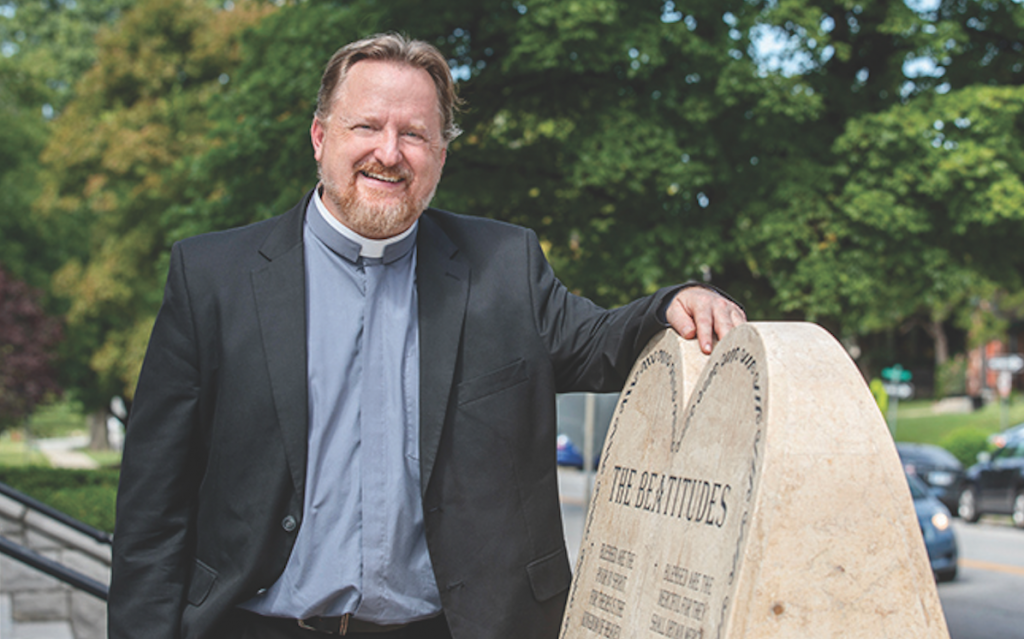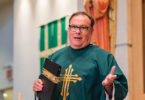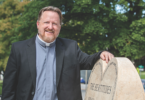
by Deacon Bill Scholl
“What have the Romans ever done for us?”
I love that scene in the Monty Python movie, “Life of Brian.” A Zealot is trying to foment a Jewish rebellion with that question, but the group keeps answering with a list of all Rome’s engineering and legal achievements. The Zealot begrudgingly acknowledges these but keeps asking the inflammatory question, as if there is no answer.
In a lot of ways, the secular world is like that Zealot by asking, “What has Jesus Christ ever done for us?” as if there is no answer.
Are you able to answer that question? If you are, it’s because you know the “kerygma,” and if your “kerygma” is to be effective in this current age, the practice of social justice must be included in your response.
This Advent, we have been going through the “kerygma” through the preaching of our priests and deacons. The “kerygma” is the core revelation of God’s goodness and personal love for each of us. It is the proclamation, the telling of God’s story, with four components: goodness of creation; sin and its consequences; God’s response to our sin; and our response to what God has done.
At the archbishop’s urging, preachers have been leaning into Father John Ricardo’s outline of the “kerygma” from his book “Rescued,” as we equip the faithful to weave the Gospel story into their personal witness to what Jesus Christ has done for us.
So, what is your answer? So, what is your response? Faith is God’s work within us to which we respond. This response has three components: gratitude, surrender and mission. We thank God by our worship and prayer; we surrender to God’s will in our life by obedience and discernment; and we participate in God’s mission to turn this upside-down world right-side-up by works of charity and justice.
Social justice is that virtue by which the baptized and confirmed apply the social teachings of the church to build up the kingdom of God in all their areas of influence. We join Jesus in his messianic mission “to bring glad tidings to the poor, proclaim liberty to captives and recovery of sight to the blind, to let the oppressed go free” (Lk 4:18).
We don’t just give to the poor; we grapple with what causes their poverty. Empowered by grateful worship and trustful surrender to God’s plan over ours, we engage in politics, economics and culture as Christ’s agents.
By our kerygmatic acts of social justice, let our neighbors hear the answer to “What has Jesus Christ ever done for us?” no matter how much it may annoy the secular powers who prefer that question to go unanswered.






